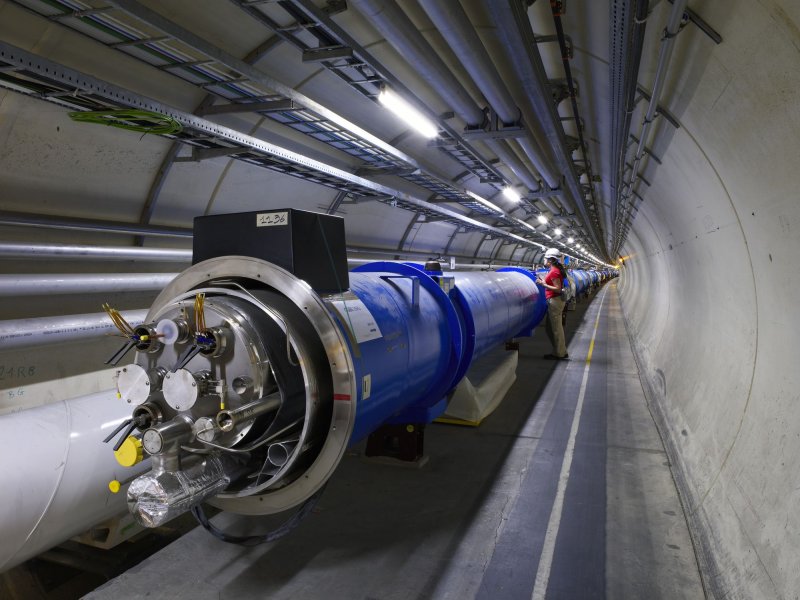Two Large Hadron Collider (LHC) magnets are seen before they are connected together. The LHC simulates mini-Big Bangs allowing scientists to study theories of the dawn of time. UPI/Maximilien Brice/CERN
GENEVA, Switzerland, Aug. 22 (UPI) -- Researchers at the Large Hadron Collider near Geneva, Switzerland, say hints of the discovery of the long-sought Higgs Boson particle have not panned out.
Last month CERN scientists reported what looked like glimpses of the elusive particle, sending waves of excitement through the global physics community.
But a re-analysis, using additional data, found the signals thought to indicate the presence of the particle considerable weakened.
"We see no striking evidence of anything that could resemble a discovery," Guido Tonelli, spokesman for the Compact Muon Solenoid detector group at CERN, told Britain's The Guardian.
In particle colliders it is common for signals to come and go because of statistical blips or fluctuations, researchers said.
"We might be very close to a depressing moment in which we conclude those fluctuations were statistical jokes, but there is also the possibility of seeing them grow with more data," Tonelli said.
"The exciting part is that after 20 years of preparation and work, I would say this will be decided by Christmas
"We are months away from really solving one of the major mysteries in fundamental physics," he said.
The research at the collider is intended to reveal what gives mass to elementary particles, something theoretically ascribed to the Higgs Boson.















